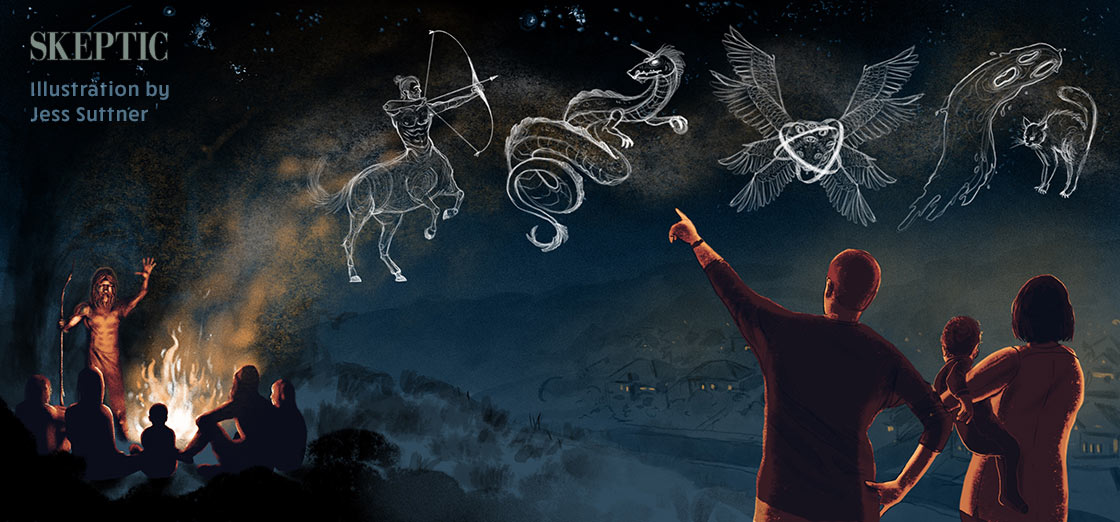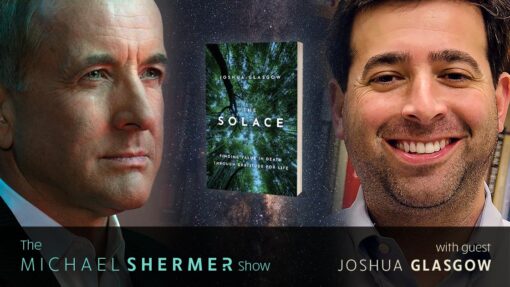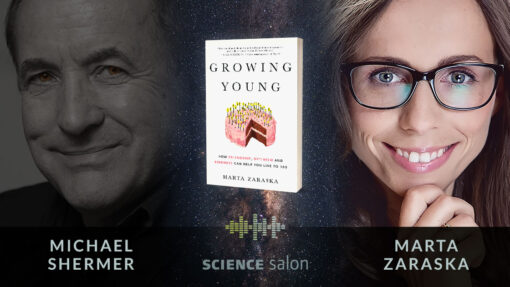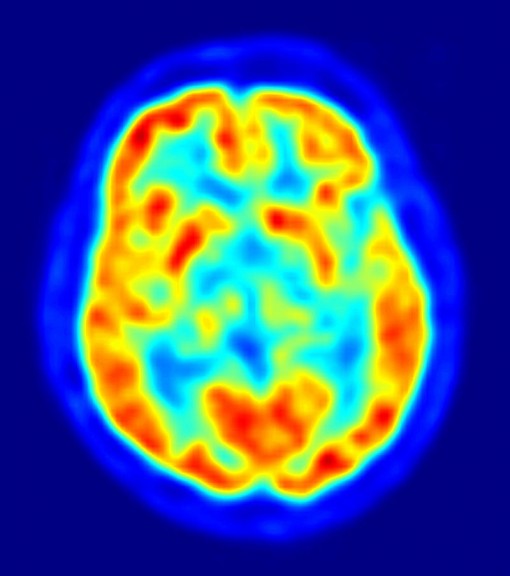mortality

Shermer and Junger discuss: his near-death experience and his curent beliefs • NDEs and OBEs • hallucinations • altered states of consciousness • sensed presence effect • sleep paralysis • why there is no “proof” of an afterlife • living forever • belief in life after death • empirical truths vs. mythic truths • longevity and how to live longer.

Long before science came of age in the Scientific Revolution of the 16th and 17th centuries, religion had been struggling to make sense of the world for millennia. Sometimes they got it right, but mostly they had no idea how the world works and had no systematic method to determine as much. This article explores the relationship between science and religion in terms of what was known back then and what is known now.

Shermer and Glasgow discuss: What does an atheist say to a dying person? • Ricky Gervais’ The Invention of Lying • being dead vs. dying • When is the “natural” time to die? • Is death worse for the young because they are losing more? • What would it really mean to live forever? • suicide • Does a terminus to life increase it’s meaning and value? • gratitude vs. solace.
Download a free PDF of Junior Skeptic 77: The Honest truth About Vaccines. PLUS: How can we find solace when we face the death of loved ones? How can we find solace in our own death? In episode 159 of The Michael Shermer Show, Dr. Shermer speaks with philosopher Joshua Glasgow about his book The Solace: Finding Value in Death Through Gratitude for Life.
In Science Salon podcast # 137, Michael Shermer speaks with Marta Zaraska about her new book Growing Young: How Friendship, Optimism, and Kindness Can Help You Live to 100. In addition to healthy nutrition and physical activity, deepening friendships, practicing empathy and contemplating your purpose in life can improve your lifespan.

In Science Salon podcast # 137, Michael Shermer speaks with Marta Zaraska about her new book Growing Young: How Friendship, Optimism, and Kindness Can Help You Live to 100. In addition to healthy nutrition and physical activity, deepening friendships, practicing empathy and contemplating your purpose in life can improve your lifespan.
In this week’s eSkeptic, Michael Shermer reviews What Evolution Reveals About Male Health and Mortality, by Richard G. Bribiescas. A shortened version of this review ran in the Wall Street Journal on November 18, 2016, under the title “Why Men Die First.”

Michael Shermer reviews What Evolution Reveals About Male Health and Mortality, by Richard G. Bribiescas. A shortened version of this review ran in the Wall Street Journal on November 18, 2016, under the title “Why Men Die First.”
A number of scientists and Silicon Valley billionaires think it’s possible to extend the human life span by a century for people alive now. In this week’s eSkeptic, Michael Shermer shares his skepticism; plus, INSIGHT guest writer, Robert Blaskiewicz, reports on the early days of the ongoing battle to protect American patients from cynically fraudulent quack “medicine.”

Mike McRae considers the possibility that recent Near Death Experience research reveals the existence of conscious, supernatural awareness in patients during cardiac arrest.














